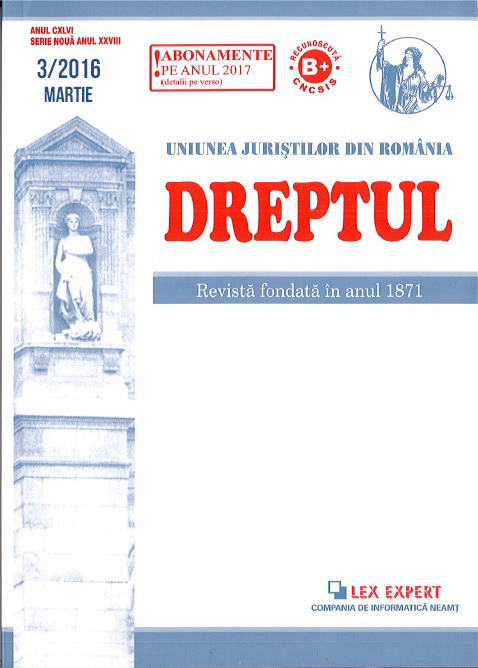According to Article 172 (12) of the Criminal Procedure Code „After the finalisation of the fact-finding report, whenever the judicial body considers necessary the opinion of an expert or whenever the conclusions of the fact-finding report are contested, an expertise shall be ordered to be made.” This legal text is not correlated with the rest of the provisions of the Criminal Procedure Code in force, nor with the other provisions of the previous codes, therefore, in the author’s opinion, this fact is likely to give rise to controversies. In a different line of ideas, the author argues that the legislator imposes as processual remedy that upon the finalization of the fact-finding report, in case its conclusions are only contested, to order an expertise to be conducted. This hypothesis is even more questionable as there is the possibility that the judicial body appreciates that the opinion of such an expert is not necessary. Thus, the legislator acts instead of the place of the judicial body in deciding on the admissibility of such means of evidence. Starting from such an inadvertence, in a given case, although the judicial body has concluded on the lack of utility and conclusiveness of an expertise, taking into account that one of the subjects to the trial, a defendant in this case, has contested the conclusions of some previous technical-scientific reports and even of an initial expertise report, both the prosecutor, during the phase of criminal prosecution, and the judge, during the phase of trial, had to admit, according to the text of the law, the contestation or the application of that subject to the trial respectively and thus to order an expertise to be conducted. The author believes that the mentioned text provision is also contrary to the contents of several normative acts that provide the independence of the judge and of the prosecutor in the activity of criminal investigation and in the phase of trial, as well as their exclusive competence to decide on the processual acts and measures, as the case is undergoing the phase of criminal prosecution, of preliminary chamber or of trial. Moreover, in support of the opinions which the author has expressed in this article, he also brings arguments of comparative law, showing that the analysis made has not identified legislations or points of view from other countries, convergent with the text of Article 172 (12) of the Criminal Procedure Code. In conclusion, for the reasons shown within this article, the author appreciates that it is required a reconsideration and reformulation of the text of Article 172 (12) of the Criminal Procedure Code from the legislator.


